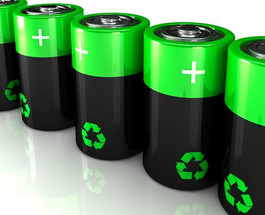Posted by Pure Potent on Mar 11th 2021
Hemp Batteries are the Wave of the Future
HEMP-DERIVED BATTERIES MAY BE BETTER THAN LITHIUM AND GRAPHENE
The need to reduce carbon footprints has led to the mass adoption of battery-powered vehicles, which are often regarded as the vehicles of the future. To this end, researchers and engineers are working round the clock to identify the best batteries that can power these machines with ease.
Recently, there has been an increased interest in the use of hemp-derived batteries and which many believe may possess a high performance than lithium and graphene-based batteries. Vehicles like Henry Ford's Model T were made from the combination of hemp bioplastics and powered by biofuel. Research has shown that hemp batteries now perform eight times better than lithium-ion, even though the comparison between the two was carried out in the laboratory.
The experiment was conducted by Robert Murray Smith and posted on FWG Limited in Kent, his YouTube Channel. During the research, he viewed a volt by Ampere curve of both lithium batteries and hemp and discovered that the hemp had a power value of 31 when the lithium cell was reading 4. As exciting as this can be, Murray still claims he is yet to prove anything.
True to the words of the researcher, the result of the experiment only showed that the performance of the cell by hemp is "significantly better" than the lithium cell by far. He presumably experimented; hence it did not come as any real surprise.
U.S scientists discovered in 2014 that the waste fibers' shiv' from the hemp crop could be processed into "ultrafast" supercapacitors, which are better compared to graphene. Graphene is a synthetic carbon material that is lighter than foil but bulletproof. It is quite prohibitively expensive to make. It is also noteworthy that the hemp version is not only better, but its costs a thousandth of the price.
In another research, Dr. Mitlin and the team recycled fibers and converted them into supercapacitors, which are energy storage devices that transform how electronics are powered. Although conventional batteries store large reservoirs of energy and drip feed the energy slowly, the super capacity discharges their whole loads. This makes them appropriate in machines that require quick bursts of power. For example, in electric cars, supercapacitors are used to regenerate braking.
This enables the flow of the required electrodes that have a high surface area which is one of the phenomenal properties of graphene. Dr. Miltin said; you can do really interesting things with bio-waste". He added that using a banana peel, "you can turn them into a dense block of carbon – we call it pseudo-graphite – and that's great for sodium-ion batteries. But if you look at hemp fiber, its structure is the opposite – it makes sheets with the high surface area – and that's very conducive of supercapacitors."
Conclusion
Hemp biofuel provides a more conducive alternative to lithium batteries. As such, it may reduce the need for fossil fuels which serve as air pollutants.
Let us know if you have any questions for us. We will love to hear from you soon.

